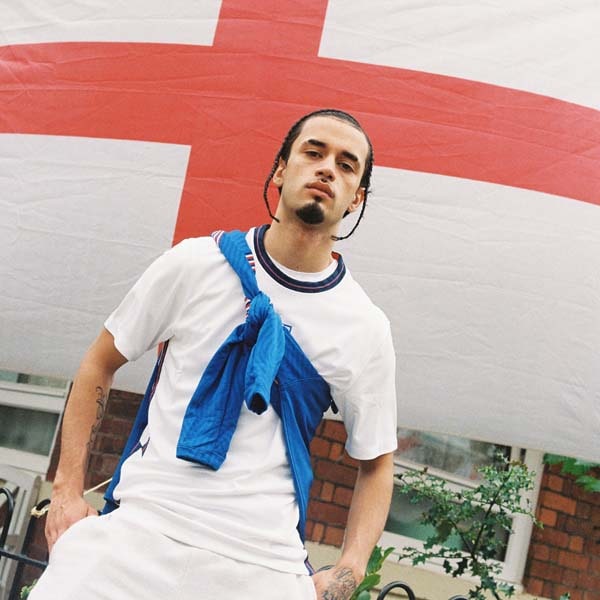Think about football and one of the most essential parts of the game in your mind would be what you see. Now try to imagine playing the game without that ability. Seems virtually impossible, right? And yet it doesn’t stop those with a determined mindset from not only playing the game, but representing their country at the highest level open to them.
Football is called the ‘beautiful game’ for a number of reasons, but chief among them is its all inclusive nature and the fact it can be enjoyed by almost anybody. Its adaptability means that, when it comes to playing the game, even the toughest of obstacles can usually be overcome; obstacles like not being able to see for example, something the majority of people would consider integral to the game. And it’s this inspiring notion that saw Pro:Direct Soccer teaming up with BT, the lead Partner of all the England Teams, recently to visit the England Blind Team to highlight the squad and a side of the game that you may not know all that much about, an opportunity we were fortunate enough to be in attendance for.
For so many of us football is an escape, and that’s no different for members of the England Blind team. “I love football because it allows me to experience feelings that nothing else in life provides,” explained 23-year old Azeem Amir, who represents Merseyside and the England National team. “Whether it’s putting your foot in for a last ditch tackle, the sound of a clean strike in the final third to knock one past the keeper or the thrill at the final whistle after a good result knowing you played and contributed to a victory for the team.” Sounds familiar, doesn’t it. That’s because, essentially, the feelings that football provides don’t change, no matter who you are or how you play the game.
They’re sentiments that are shared by the entire squad, with Amir’s teammate for both Merseyside and England, Rainbow Mbuangi, reiterating: “I love to play football because of the feeling of freedom it gives me.”
Merseyside Blind’s captain, Roy Turnham adds: “I’ve always felt such a buzz from having a ball at my feet. For me, blind football allows the freedom to express myself in a way that no other sport can achieve. To be creative, to have absolute physical independence, to work and play with great people and to help and support others.”
For me, blind football allows the freedom to express myself in a way that no other sport can achieve. To be creative, to have absolute physical independence, to work and play with great people and to help and support others.”
So the similarities with standard football are fairly obvious, both in terms of the basic rules and the feelings that it generates for players and fans alike. But how does it differ? “Compared with mainstream football, blind football is most similar to futsal,” explains Turnham. “It’s played 5-a-side, with a smaller pitch and heavier ball, and it relies on excellent close ball control and dribbling skills, spacial awareness and high energy levels.
“Boundary boards are set up along the sides of the pitch to help players to use echo location to orientate themselves,” he continues. “Verbal communication is key – goalkeepers can speak to players within their defensive 3rd, a coach can guide from the side in the middle 3rd, and another coach guides in the attacking 3rd from behind the opposition's goal. Before making a tackle or challenging for a loose ball, players must say the word ‘VOY!’ otherwise they concede a foul.”
Some obvious differences then, but essentially, the game remains the same, played with the same passion and desire to win that’s present in almost any level of the game – something that’s on clear display from the assembled top tier of English talent. Brandon Coleman, who plays for Brighton and Hove Albion, has been a member of the England squad since 2016: “I enjoy the competitive side to football, which gives me drive and determination to be the best in all aspects of my life.”
Coleman was England’s top scorer in the 2018 World Cup in Madrid, and after a disappointing Euros tournament in 2019, he’s targeting glory this summer: “I’m hoping we can win the tournament and qualify for the Paralympics. With a young squad we’re not favourites, but I believe we can cause an upset. I would love to show Europe what I am capable of since the Euros 2019.” Amir backs up the optimistic approach: “My main aim is to play an influential part in the European Championships in 2022 to give our squad the best chance at finishing in a medal position.”
Victory in an international tournament would represent the pinnacle of any athletes career, and for Turnham, who at 37 is one of the senior heads in the team, it could be one of his last shots at success. “I just want to give everything I can to the team in the upcoming matches and European championships and thoroughly enjoy the challenge. At 37, I've been around the block a bit and I want to do everything I can to mentor and support the exciting young talent we have coming through.”
Having not missed a competitive England match since 2012, competing in four European championships, two World Games and one World Cup, earning 103 caps and scoring 43 goals on the way, he’s certainly done his part. He’s come a long way from where he began, but it’s testament to not only his own drive, but also the development of the game and its increasing inclusivity. “Competitive opportunities were very limited when I was a child. I played a lot of 1 v 1s with my older brother in the garden, and joined in with my sighted friends at school wherever I could, but it wasn’t until Everton started running blind football sessions and entered a team in the national blind league when I was in my early 20s that I really got involved.”
I lost my sight in May 2012 when I was 17, and I struggled to see a future for myself until I was introduced to blind football."
The journeys that these men have been on are all inspirational, with football doing what it has done for so many in the world, providing hope and purpose. “I lost my sight in May 2012 when I was 17, and I struggled to see a future for myself until I was introduced to blind football,” said Coleman. “An inspirational figure for me when I started the game was my coach, Adam Bendall, who showed faith and belief in me. This meant a lot as no one had shown me this much support since my sight loss.”
And in that purpose, great things can be achieved. Coleman reminisces: “I remember in the quarter final of the World Cup against Argentina. We were 1-0 down with two minutes to go and I scored a free kick to take us to penalties. It was the best feeling I have ever had in my life. I couldn't stop smiling and I had goosebumps all over my body.” Let’s face it, any English football fan would take a goal of any sort against Argentina, let alone one that was so crucial.
These players have forged memories that will last a lifetime, no one can take them away, and now they’re targeting more as they aim for glory at the Euros. We’re behind you all the way – make the nation proud.
The 2022 IBSA Blind Football European Championships will take place in Italy, and are set to run from 08 June – 18 June 2022.
Check out BT’s #DiscoverDisabilityFootball on social and here to find out more about the game.


















